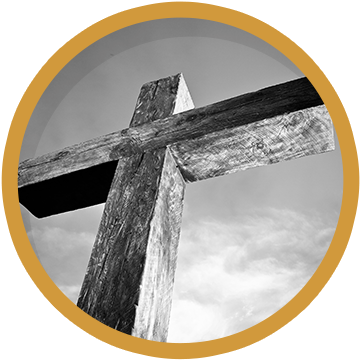Kindergarten
Since every child should enjoy his/her first encounter with formal education, we use Beginnings from Bob Jones University Press as the curriculum for our kindergarten program. This phonics-based material teaches foundational language skills for reading and writing. Along with these beginning skills, the teacher will present lessons focusing on reading comprehension, history, science, art, music, and motor skills. The Math for Christian Schools work texts assist in the training of thinking skills and in the understanding of math concepts through interactive questioning and discussion. Student manipulatives provide learning activities, which better develop mathematical comprehension. Bible Truths for Christian Schools offers Bible content from which concepts of Christ-like character are developed. Memorization of the 36 verses and 50 catechism questions provides an excellent introduction to Biblical study.
Elementary
BIBLE
Bible Truths for Christian Schools in the lower elementary grades present basic doctrine and emphasize principles as well as Bible knowledge. The student books include hymns and spiritual songs, reference materials, and a prayer list. The upper elementary courses provide an exciting tour through all sixty-six books of the Bible, explaining the purpose and meaning of each one. The discussion format encourages students to participate while they enjoy word studies and learn about archaeological discoveries. All grades continue mastery of catechism questions and memory verses.
ENGLISH
The daily lessons of First Grade English Skills use themes to provide an exceptional teaching advantage. While emphasizing phonics as the primary word-recognition skill for beginning readers, it ties together all the language skills. Each information-rich lesson includes listening comprehension, reading comprehension, handwriting, composition and grammar, and oral communication, along with the systematic teaching of phonics.
English for Christian Schools (grades 2 – 6) carefully balances the use of language through writing skills and concepts and rules. This balance is reflected in the goals for each student: clear and effective presentation of ideas, correct and appropriate use of English, interest in the structure of our language, and appreciation of language as a gift of God. Our teachers not only test spelling but more importantly teach it. The students then internalize rules and learn to use language relationships to improve spelling skills.
READING
The companion to the English program is Reading for Christian Schools. This reading curriculum uses questioning procedures before and after silent reading, which strengthens the child’s comprehension skills and leads him/her to understand the author’s full message. This focus on comprehension from the beginning helps children develop the patterns of thinking that will be needed in later grades and throughout life. Each reading selection is chosen to develop eager readers, encourage Christian growth, and create a love for good literature. Study skill development and critical comprehension opportunities intensify as the child graduates to each grade level.
HERITAGE STUDIES
History, geography, and culture can be correctly studied only when God’s direction and design are considered. Heritage Studies for Christian Schools presents the student’s heritage, the development of the United States, and the cultures of the world from a Biblical perspective.
MATH
Thinking and understanding skills are developed through interactive questioning and discussions. Student manipulatives provide learning activities to enhance the transfer of understanding from the concrete to the abstract level. Math for Christian Schools utilizes the concept approach to teaching mathematics. The lessons are more than exercises in numbers. They stress the understanding of math concepts, not merely the procedure to arrive at the correct answer. Skills are then applied to problem-solving situations based on examples from everyday life.
SCIENCE
The Science for Christian Schools series presents scientific knowledge from a Christian perspective. The child’s ability to reason scientifically is enhanced as the child sees how science applies to everyday life in God’s creation.
MUSIC
Music programs are presented a couple of times a year. Music class is offered at each grade level. Beginning band grades 4 –6) allows students to develop their musical talents through any of the major band instruments.
Junior High & High School
Promotion for a junior high student is based upon successful completion of the five core subject areas. If a student does not pass each of these courses, he must take the subjects in summer school.
High school students concentrate on the successful completion of a core educational track. Students in senior high school begin to accumulate the twenty-four credits necessary to meet graduation requirements. Great Hope Baptist School provides a student with a thorough, traditional education, which creates a background necessary to take college entrance examinations such as the SAT and the ACT.
GRADUATION CREDIT REQUIREMENTS
Bible 4
English 4
Electives 3
Science 3
Math 3
Foreign Lang. 3
History 4
Total: 24
COURSE OFFERINGS 9 – 12
English
English I & Fundamentals of Literature
English II & Elements of Literature
English III & American Literature
English IV & British Literature
AP English Language & Composition
AP English Literature & Composition
Social Studies
Geography
World History
AP U.S. History
AP U.S. Government & Politics
Mathematics
Algebra I
Algebra II
Geometry
Advanced Math
Consumer Math
Science
Basic Science
Biology
Chemistry
Physics
Foreign Language
Spanish I, II & III
Business
Computer Applications
Economics
Fine Arts
Speech
Chorus
Band
Other
Bible I – IV
Yearbook
Great Hope Baptist School students historically achieve better than average scores on the Stanford Achievement Tests. Click
 HERE for an overview of how ODACS schools' students performed on the 2012-2013 Stanford Achievement Tests.
HERE for an overview of how ODACS schools' students performed on the 2012-2013 Stanford Achievement Tests.




